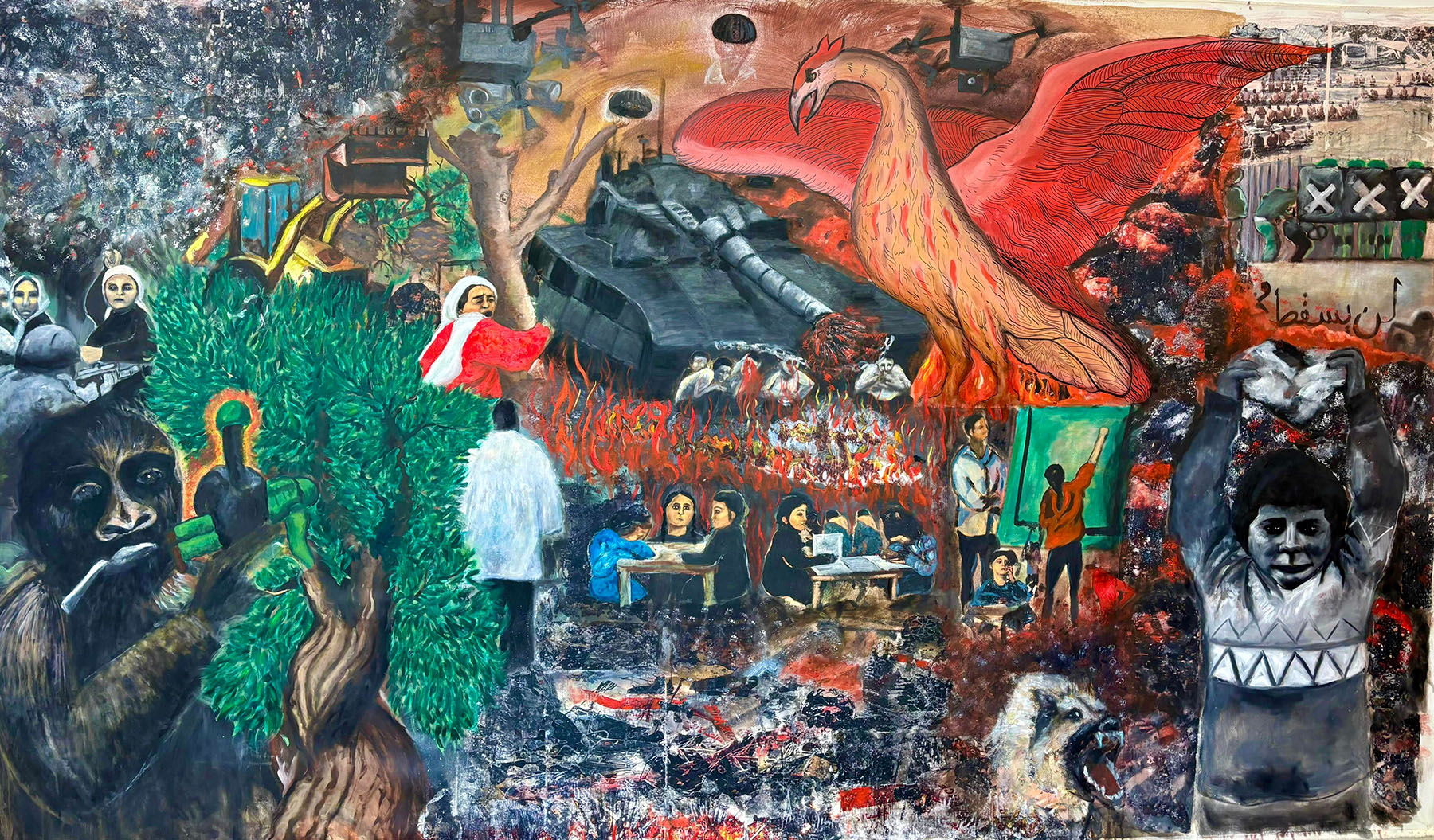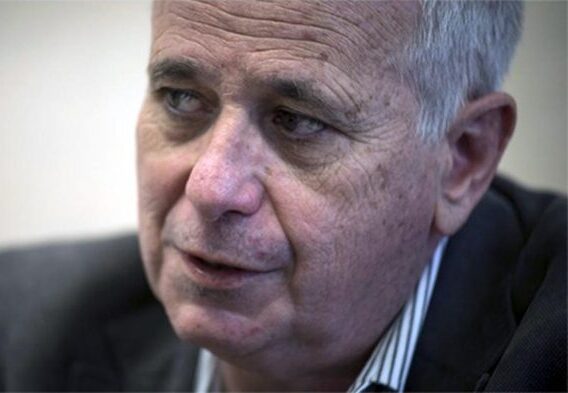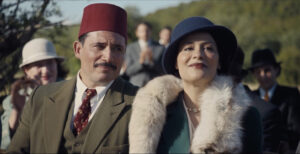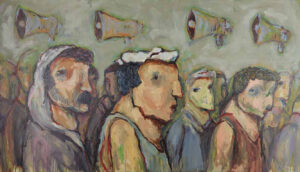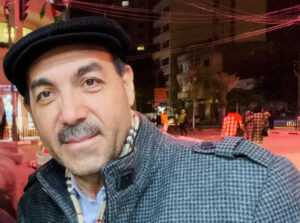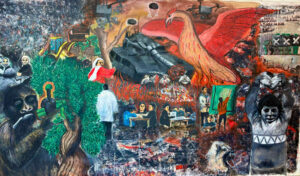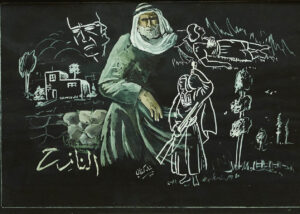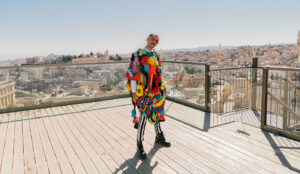The annual Nakba Remembrance Day notwithstanding, the catastrophe that marks every May 15 for what transpired in 1948 is not so much a memory as it is al-mustamirrah — ongoing. This is the reality behind the continual violence waged against the Palestinians in their own land. Clues are also provided in a 1949 Israeli novella where the Palestinians are depicted as: “the Jews of the Jews.” This mutual line of racism and victimization runs through the Nakba and the Holocaust.
Ilan Pappé: I was thinking about your longtime engagement with the events of the Nakba as a novelist. One is the way you and many others would refer to the Nakba as al-Nakba al-mustamirrah — the ongoing Nakba. There’s a certain sense of desperation because it seems that the most common references to the Nakba are its persistence and constant denial.
Your novels bring it back, as did the poems of Mahmoud Darwish, as did the work of the historians. Is it part of what Edward Said used to call a demand for “permission to narrate,” or is it much more than that? Also can you talk about the Nakba and its connection to the Holocaust through Adam Danun, who says in [your novel] Children of the Ghetto, “I did not conceal my Palestinian identity, but I hid it in the Palestinian ghetto [in al-Lid, Lod] in which I was born. I was a son of the ghetto and it bestowed upon me the immunity of the Warsaw Ghetto.”
Elias Khoury: I first used the term “the ongoing Nakba” in a lecture I gave at the annual lecture for the Wissenschaftskolleg Institute for Advanced Studies in Berlin. The hall was full of German professors and German heads of universities. I read a long text. To my astonishment, nobody clapped for ten seconds. Then everybody did. But the reaction and real anger was, “You are speaking about the Nakba now and the Nakba happened in ’48 — khalas!” There was no denying of the Nakba … But they wanted to deny that what we are living through now is the Nakba, that this is the Nakba taking different forms.
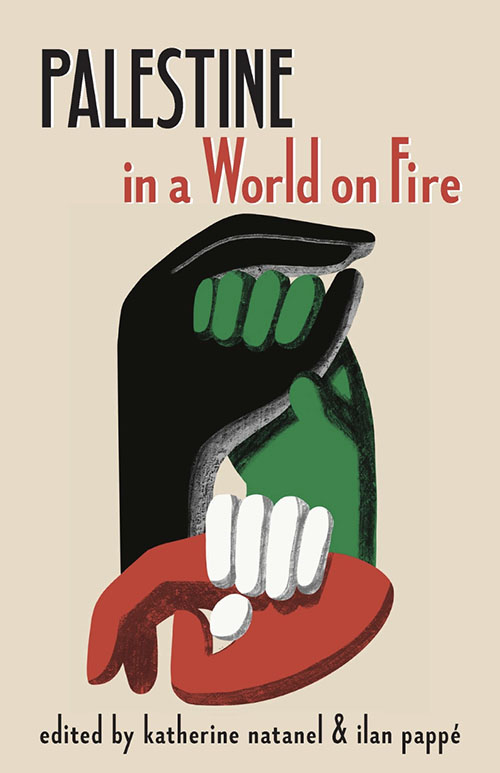
I do not say the Holocaust and the Nakba are the same thing. One of the differences is that the Holocaust happened. The Nakba is happening. This is the present of Palestine and this is the present of the Arabs. It’s happening now — in Sheikh Jarrah, in Nablus, everywhere in Palestine and historic Palestine. What we are witnessing is the same project, which is continuing. When [Israeli historian] Benny Morris republished his book after the second intifada, he said that Ben-Gurion committed a big error when he did not continue. The first declaration by Ariel Sharon at the beginning of the Second Intifada was, “We are in a new war of independence,” which means we are in the Nakba. The war of independence is not finished. There is a continuous process which is still taking place and our struggle is to stop this process. The moment we stop this process, everything will change.
In this sense, the Nakba is not a memory. It is the present, and memory comes from the present. You mentioned the ghetto of Lydda — there were many ghettos: Lydda, Ramle, Haifa, Jaffa. The Palestinians in the ghetto heard the term for the first time from Israeli soldiers. To my astonishment, many people told me, “Isn’t it the name of the Arab quarter, of the Arab neighborhood?” They thought this is the name Israel gave to the Arab neighborhood — “ghetto.”
It was not by accident that the Israeli soldiers called them ghettos — in their subconscious they knew what they were doing … I think these criminals were aware of their criminality. There is a beautiful Israeli novel, Khirbet Khizeh by S. Yizhar [the pseudonym of the Israeli politician Yizhar Smilansky]. S. Yizhar was a Zionist, but I taught his novel. For those doing comparative literature, it’s interesting to compare Khirbet Khizeh to Palestinian literature.
The novel was published in 1949, during the war of the Nakba, during the war of independence. Yizhar describes the Palestinians who are expelled from this village — he called it “Khirbet Khizeh,” but we later learned it was the actual village Khirbet al-Khisas — as if they are Jews. He uses the same terms that the antisemites use to describe the Jews, which makes them “the Jews of the Jews.”
The Nakba and the Holocaust are related through this concept, the Jews and “the Jews of the Jews.” And it seems all societies and all types of racism need Jews, as a figure. If you don’t have Jews, you invent your Jews!
The same thing is taking place now in Europe: they are inventing their Jews from the Muslims. So practically it is no longer possible to understand the Holocaust without understanding the Nakba, or to understand the Nakba without understanding the Holocaust. This doesn’t mean that one crime and another crime make us equal.
The Holocaust is a crime that we must condemn, and the Nakba is a crime that we must condemn. But the Nakba is still taking place and we must be accountable. Otherwise, we cannot escape this vicious circle. I know this will not sound realistic, but I am not realistic. You need a dream. You need a dream to write books.
IP: What are your views on the future political structure that may have the ability to carry the Palestinian liberation struggle forward in this century?
EK: I want to remind you that after the defeat of 1967, there’s a scene [in my novel Gate of the Sun] where Yunis is in the camp and he says to everyone, “From the beginning, we have to begin again.” I think we are now in a moment which is very similar to that moment. We need a new beginning… and the beginning must be from the base — from the struggle and resistance against the occupation, apartheid, and the closed national identitarian discourse. The struggle for a free and democratic Palestine, where Palestinians have the right to return, where we can hope for a future for the children, grandchildren, and great-grandchildren of the refugees who have been through hell for seventy-four years. But struggle has many forms, and one of its forms is writing and literature. I think Palestine now is literature.
*The excerpt is from Palestine in a World on Fire, eds. Katherine Natanel and Ilan Pappé (Chicago: Haymarket Press, 2024). The interview has been edited for brevity.



